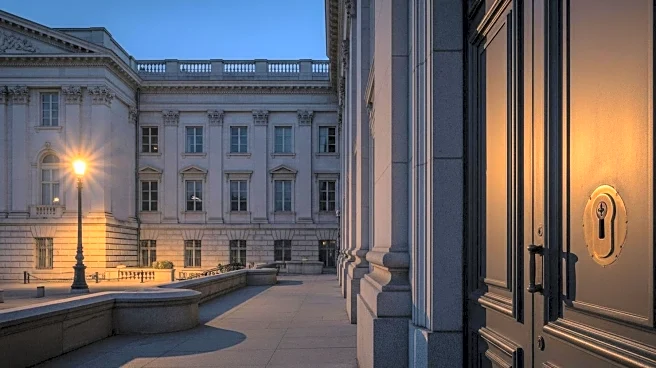What's Happening?
The U.S. government has shut down after Congress failed to reach a budget agreement. The shutdown, the first since 2018, has led to the furlough of federal employees and the suspension of non-essential services. Republicans and Democrats have blamed each other for the impasse, with disagreements over healthcare funding and Medicaid cuts at the center of the dispute. The shutdown affects millions of federal workers and could have significant economic repercussions.
Why It's Important?
A government shutdown disrupts public services and can have a ripple effect on the economy, affecting everything from national parks to federal employee paychecks. The political standoff highlights deep divisions in Congress, which could impact future legislative efforts. The shutdown also poses a risk to public confidence in government institutions and could influence voter sentiment in upcoming elections.
What's Next?
Negotiations are expected to continue as both parties seek a resolution to reopen the government. The outcome will depend on whether a compromise can be reached on key issues like healthcare funding. The shutdown's duration and impact will be closely watched by political leaders, businesses, and the public.









